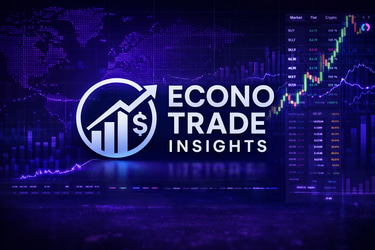Understanding Retail vs. Institutional Investors in Financial Markets
10/15/20254 min read


Who Are Retail Investors?
Retail investors are individual participants in the financial markets who buy and sell securities for their personal accounts, rather than for an organization. Typically, retail investors carry a range of characteristics that distinguish them from institutional investors, such as mutual funds or pension funds. These individual investors are often defined by their smaller investment amounts, lack of extensive research resources, and varied levels of market knowledge. Most retail investors primarily manage their investment portfolios with a long-term growth mindset, looking to build wealth over time rather than engaging in high-frequency trading.
Commonly, retail investors utilize straightforward investment methods, such as purchasing stocks, bonds, or mutual funds. In recent years, the rise of online brokerage platforms has transformed the investment landscape for retail participants, providing them with unprecedented access to trading tools and resources. These platforms facilitate an easy and cost-effective means for individuals to enter the market, thereby democratizing investment opportunities. Moreover, retail investors often rely on a mix of fundamental and technical analysis to inform their investment decisions, although many are still learning to navigate the complexities of financial markets.
Retail investors face both advantages and disadvantages in comparison to institutional investors. One notable advantage is their flexibility; they can swiftly react to market changes without one-size-fits-all constraints. Conversely, retail investors may lack the same level of analytical resources and institutional clout, which can pose challenges when negotiating prices or accessing investment opportunities. As technology continues to evolve, retail investors are increasingly capable of leveraging online platforms to enhance their trading strategies. For those seeking to embark on their investment journey, exploring recommended trading platforms can serve as a foundational step towards building a robust financial portfolio.
Who Are Institutional Investors?
Institutional investors play a pivotal role in the financial markets, representing a category of entities that invest large sums of money on behalf of others. This group includes organizations such as pension funds, mutual funds, insurance companies, and hedge funds. Unlike retail investors, who typically purchase smaller amounts of securities for personal accounts, institutional investors manage substantial portfolios and generally have access to a greater range of investment opportunities.
One of the main distinguishing features of institutional investors is their ability to leverage resources and information. They often employ professional portfolio managers with expertise in various asset classes, advanced risk management strategies, and sophisticated analytical tools. These advantages confer significant benefits when navigating market complexities, facilitating more informed decision-making compared to retail investors, who may lack similar resources.
Types of institutional investors vary considerably in terms of the investment strategies they adopt. For instance, pension funds focus on long-term growth to secure retirement benefits for their members, while hedge funds may pursue more aggressive strategies, including short selling and the use of leverage, to achieve high returns in shorter time frames. Mutual funds appeal to a broader audience by pooling capital from many investors to purchase diverse assets, thus enabling individual retail investors to benefit from institutional-grade investment strategies.
This diverse range of strategies enables institutional investors to exert substantial influence on market trends and liquidity. Their collective buying or selling power can stimulate or suppress stock prices, affecting not only their portfolios but also the broader market. Given their size, sophistication, and resources, institutional investors are essential players in financial markets, often driving performance metrics and strategies that shape the investing landscape.
Key Differences Between Retail and Institutional Investors
When examining the financial markets, the distinction between retail and institutional investors is significant. One of the primary differences lies in capital availability. Retail investors generally possess limited funds compared to their institutional counterparts, such as pension funds, insurance companies, and hedge funds. The sheer volume of capital that institutional investors manage allows them to execute large trade orders, which can influence market movements far more than retail trades. This capital disparity can result in varying effects on liquidity in the markets.
Investment strategies also diverge markedly between the two types of investors. Retail investors often pursue straightforward approaches that may involve buy-and-hold tactics or utilize brokerage platforms to manage their portfolios. In contrast, institutional investors employ sophisticated investment strategies, including quantitative models and algorithmic trading. This complexity aids institutional players in diversifying their portfolio, optimizing risk-adjusted returns, and capitalizing on market opportunities that retail investors may overlook.
Risk tolerance presents another stark difference. Due to their vast experience and resources, institutional investors usually exhibit a higher risk appetite. They often manage diversified portfolios and can absorb losses more comfortably than retail investors, who may be more risk-averse in their investment choices. Consequently, retail investors might focus on safer, lower-yield investments, while institutional investors do not hesitate to explore more volatile assets for potentially higher returns.
The regulatory environment surrounding these two categories also varies. Institutional investors generally face different and more stringent regulations than retail investors. Compliance requirements, reporting obligations, and governance structures that apply to institutional entities shape their trading behaviors. Understanding these key differences is essential for anyone interested in entering the financial markets, providing insights into how each group affects market dynamics. For those seeking to deepen their knowledge, considering educational platforms is highly beneficial.
Why It Matters for Your Investment Journey
Understanding the distinction between retail and institutional investors is crucial for anyone embarking on an investment journey. Retail investors are typically individual participants in the market, while institutional investors encompass entities such as pension funds, hedge funds, and mutual funds, managing significant capital. This distinction can substantially influence investment strategies and market trends, highlighting the diversity of approaches in the financial markets.
For retail investors, recognizing the characteristics and behaviors of institutional investors can help shape their strategies. Institutional investors often have access to extensive research, advanced trading tools, and substantial resources, which can provide insights into market movements. This awareness enables retail investors to make informed decisions, enhancing their understanding of market psychology and volatility. By acknowledging these differences, individuals can better position themselves to navigate the complexities of the investment landscape.
The importance of education cannot be overstated in this context. Retail investors should actively seek out reliable resources to bolster their financial literacy. Numerous online academies and courses are available, offering tailored financial education, trading strategies, and market analysis. Moreover, utilizing dependable trading platforms can significantly impact the success rate of retail investors. Choosing a reputable exchange ensures access to necessary tools and support, fostering an environment conducive to informed trading decisions.
As you consider your investment strategy, remember the role of both retail and institutional investors. Engaging with educational materials and reliable trading platforms can empower you to make strategic decisions that align with your financial goals. To start your investment journey with confidence, visit https://www.okx.com/ for trading opportunities and explore GO AI-ACADEMY to enhance your trading knowledge.
EconoTrade Insights
Learn. Trade. Grow.
Empowering financial freedom through smart education and trusted tools.
© 2025 ECONO TRADE INSIGHTS. All rights reserved.
About - https://econotradeinsights.com/about-us-financial-blogging
Contact - econotradeinsights@gmail.com
Disclaimer - https://econotradeinsights.com/disclaimer
Terms & Conditions - https://econotradeinsights.com/terms-and-conditions
